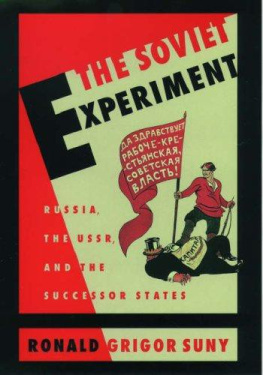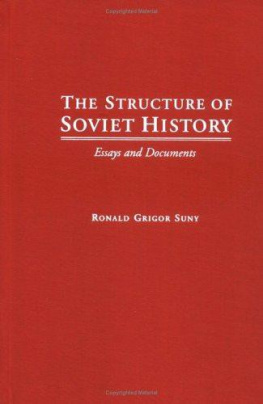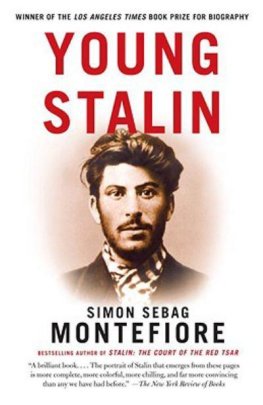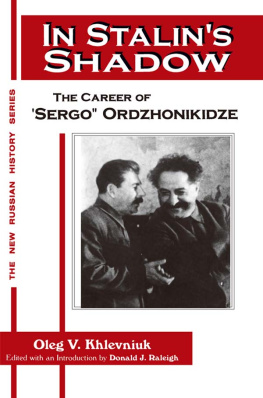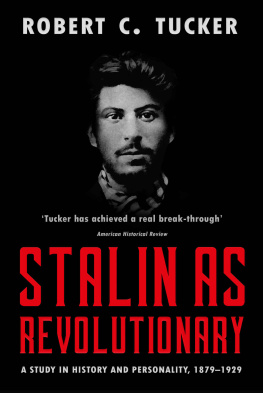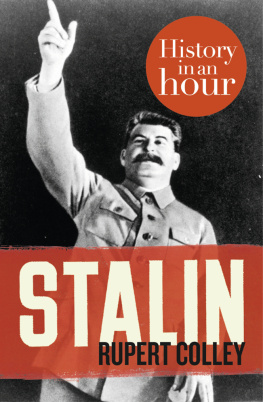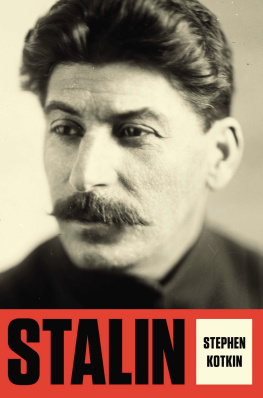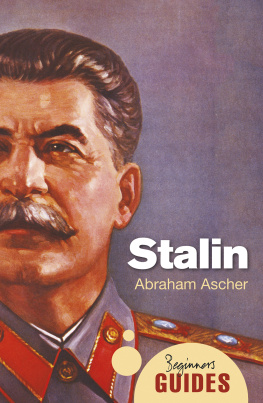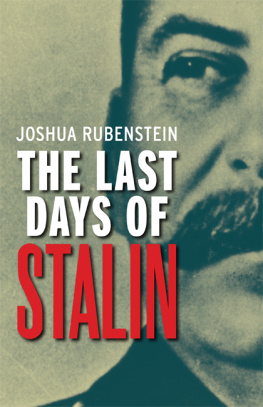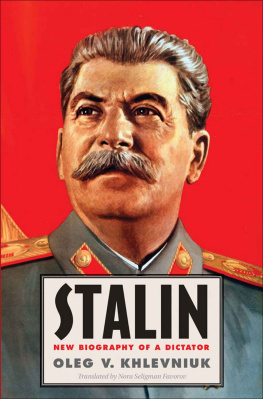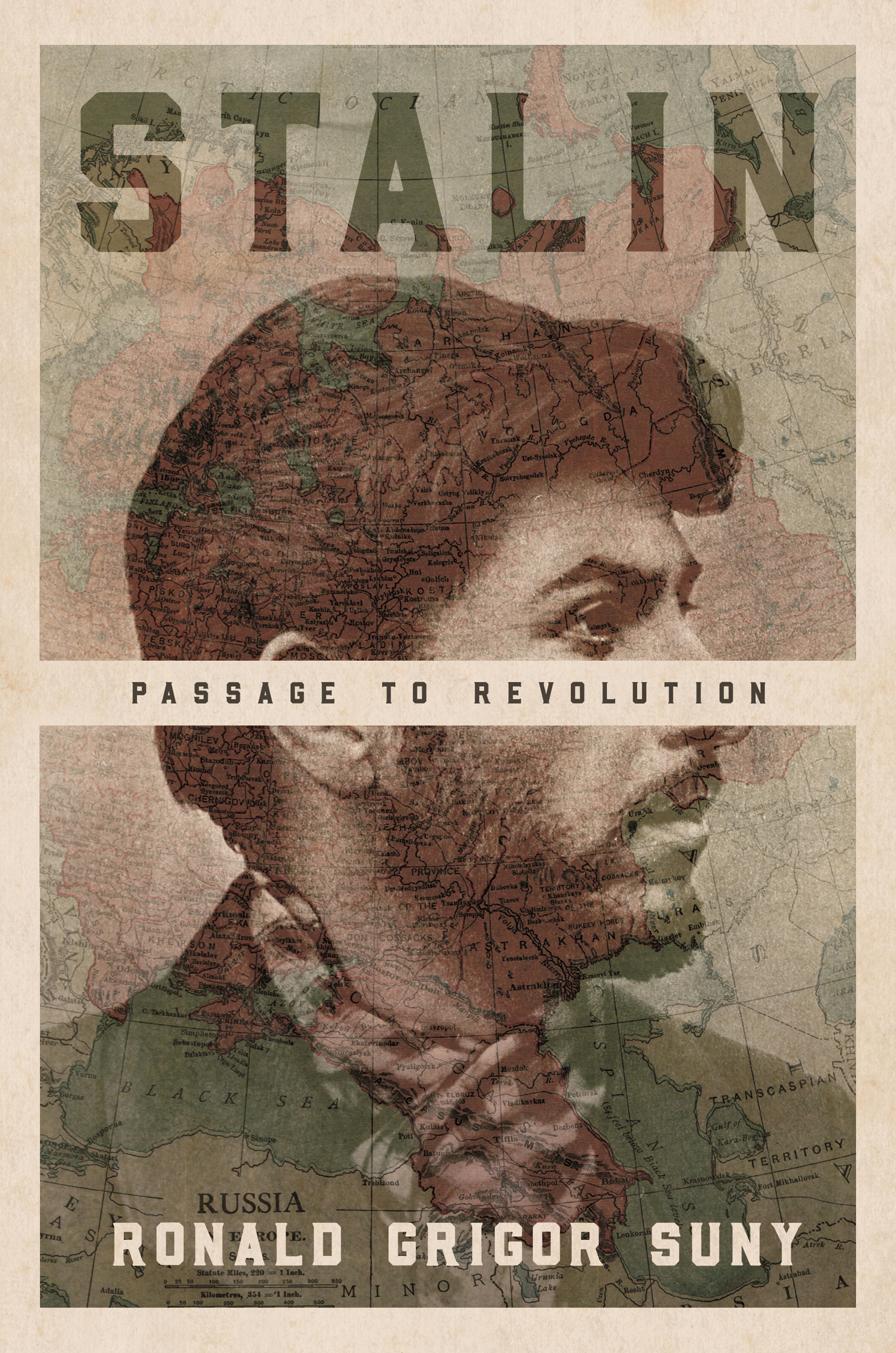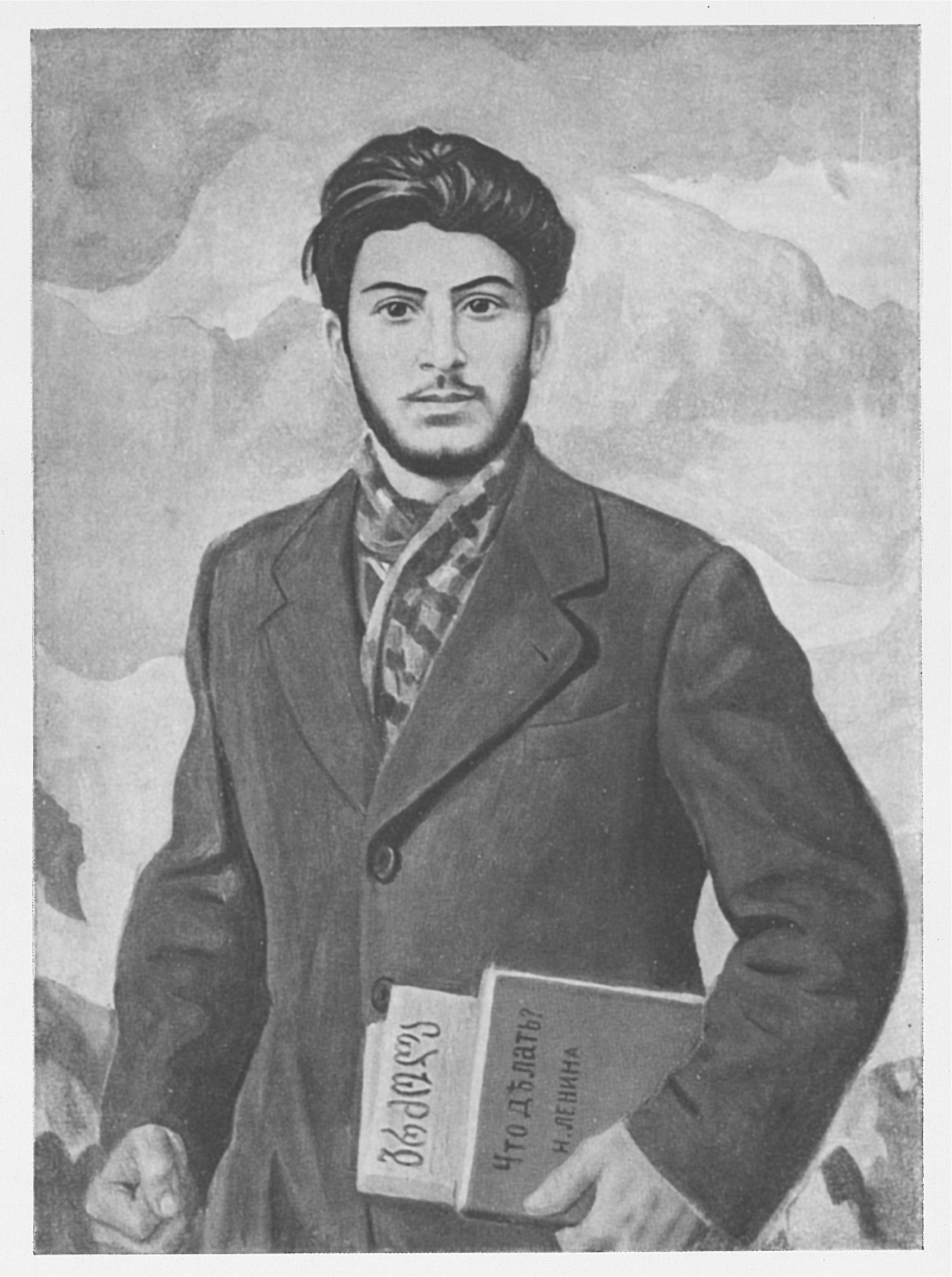
The Fiery Colchidian (Plamennyi kolkhidets), a romanticized image of the young Stalin by the famous Georgian painter Irakli Toidze. Here the studious, determined Stalin is shown carrying a copy of Lenins What Is to Be Done? and the journal brdzola (Struggle) for which he wrote articles. In fact, he was not Colchidian, that is from western Georgia, but Iberian or kartveli, from eastern Georgia.
The author is grateful to the Toidze familyIraklis grandson, Giorgi, and his mother, Rozaliia Borisovna Toidzefor permission to use this image. A search for the original painting has not been successful.
STALIN

PASSAGE TO REVOLUTION

RONALD GRIGOR SUNY
PRINCETON UNIVERSITY PRESS
PRINCETON & OXFORD
Copyright 2020 by Princeton University Press
Requests for permission to reproduce material from this work should be sent to permissions@press.princeton.edu
Published by Princeton University Press
41 William Street, Princeton, New Jersey 08540
6 Oxford Street, Woodstock, Oxfordshire OX20 1TR
press.princeton.edu
All Rights Reserved
Library of Congress Cataloging-in-Publication Data
Names: Suny, Ronald Grigor, author.
Title: Stalin : passage to revolution / Ronald Grigor Suny.
Description: Princeton : Princeton University Press, 2020. | Includes bibliographical references and index.
Identifiers: LCCN 2019034217 (print) | LCCN 2019034218 (ebook) | ISBN 9780691182032 (hardback) | ISBN 9780691202716 (paperback) | ISBN 9780691185934 (ebook)
Subjects: LCSH: Stalin, Joseph, 18781953. | Soviet UnionHistoryRevolution, 19171921Biography.
Classification: LCC DK268.S8 S77 2020 (print) | LCC DK268.S8 (ebook) | DDC 947.084/2092 [B]dc23
LC record available at https://lccn.loc.gov/2019034217
LC ebook record available at https://lccn.loc.gov/2019034218
Version 1.0
British Library Cataloging-in-Publication Data is available
Editorial: Eric Crahan and Thalia Leaf
Production Editorial: Kathleen Cioffi
Text Design: Leslie Flis
Jacket Design: Faceout Studio
Production: Danielle Amatucci
Publicity: James Schneider and Kate Farquhar-Thomson
Copyeditor: Jennifer Harris
Jacket art: (Background) Map of Russian Empire, 1913 / Buyenlarge Archive / UIG / Bridgeman Images. (Photograph) Josef Stalin, 1902. Sputnik / Alamy Stock Photo
To Armena Pearl Marderosian
(January 1, 1949November 3, 2012)
My life companion,
who never tired of asking questions
ACKNOWLEDGMENTS
This book has had a long gestation. I signed the initial contract with my first editor, Nancy Lane, at Oxford University Press in 1987. She and subsequent editors patiently supported my decision to delay the writing as we watched the Soviet Union collapse and the archives open. Over the next decades I was able to work in both Moscow and Tbilisi, as well as at the Hoover Institution Archives at Stanford University, and discover materials that earlier biographers had been denied. I benefited enormously from the research of Aleksandr Orlovskii, Simon Sebag Montefiore, Olga Edelman, and Erik van Ree, fellow trollers in the documentary record of the young Stalin. Two young historians in GeorgiaGiorgi Kldiashvili and Levan Avalishviliprovided a service, not only to me but also to all future historians and their homeland, by saving the archive of the Georgian Communist Party from the brink of destruction. They convinced Omar Tushurashvili of the Georgian Ministry of Internal Affairs of the importance to Georgias history of the materials then disintegrating in the building of the then defunct Institute of Marxism-Leninism. The documents were rescued and moved to a secure location, in which I had the pleasure of being the first researcher to work.
Much of the work on this book (and other projects) was accomplished while I was a residential fellow at the Center for Advanced Study in the Behavioral Sciences in Stanford, California (20012002, 20052006). CASBS is a place of active engagement with other scholars and the world beyond its beautiful hilltop. I am grateful to the two directorsDoug McAdams and Claude Steeleand the staff for the environment they created for all of us. It was on that pleasant hilltop where I met an extraordinary man of letters, Donald Lamm, whose reading and suggestions shaped the way I have told this story. Other inspirational environments have included Ann Arbor and the University of Michigan; Hyde Park and the University of Chicago, each with its own intense collectives of colleagues and students; Moscow, with long-time dear friends (Vahan Mkrtchian and family most importantly); Tbilisi and Erevan, where teachers of languages and besieged historians contributed to my completing this endeavor. Many friends and colleagues have read earlier drafts and offered invaluable comments. Susan Ferber, with whom I worked for many years on this and other books, is an editor who actually edits, and I appreciate enormously her improvements to the text. I also wish to thank my superb editor at Princeton University Press, Brigitta van Rheinberg, for her interest in this project and her diligence and intelligence in turning a manuscript too enamored of esoteric detail into a more readable and accessible book. She secured the services of two excellent readersthe gifted biographer and political scientist William Taubman, and the leading Western historian of Georgia, Stephen Joneswhose supportive and critical suggestions reshaped and further improved my work. When she moved upward at Princeton, she handed me on to Eric Crahan and the gifted professionals at the press, who guided the manuscript with great skill into print.
I am grateful particularly to my fellow Georgianists Oliver Reisner, Stephen Jones, and Beka Kobakhidze. Beka not only read and corrected a late draft of the manuscript but also contributed new sources from his deep knowledge of modern Georgian history. My comrade and critic Alex Szejman read various versions of the text, convinced me to put more of myself into it, but sadly did not live to see it in print. Colleagues in political science and history Geoff Eley, Charles King, Lars Lih, Norman Naimark, David Priestland, Alexander Semyonov, Lewis Siegelbaum, Milan Svolik, and Erik Van Ree carefully and critically read and commented on earlier drafts of this book. Their erudition and attention to detail and argument improved the text considerably.
Archives are often difficult places to work, and at times it seems to historians that archivists are there to prevent them from doing their work. My colleagues in the field are well aware of the frustrations that researchers face in working in Soviet and post-Soviet archives. At times materials that had been available are rendered inaccessible, while at other times unsuspected treasures appear. I will always remember the 1970s, when I worked in Tbilisi, living in hotels with my wife, Armena, reading forbidden newspapers in the Karl Marx Library, and calling over and over again to the archives only to be told that the desired materials were still in the process of


